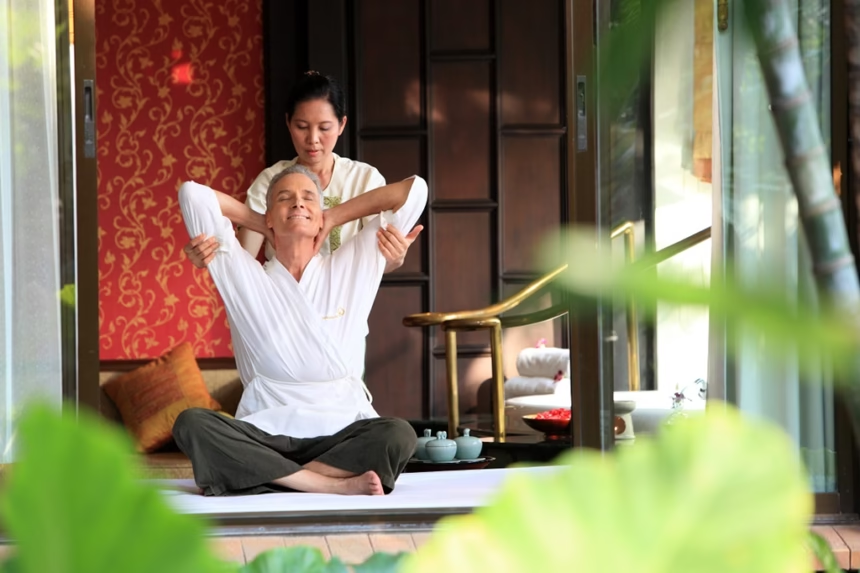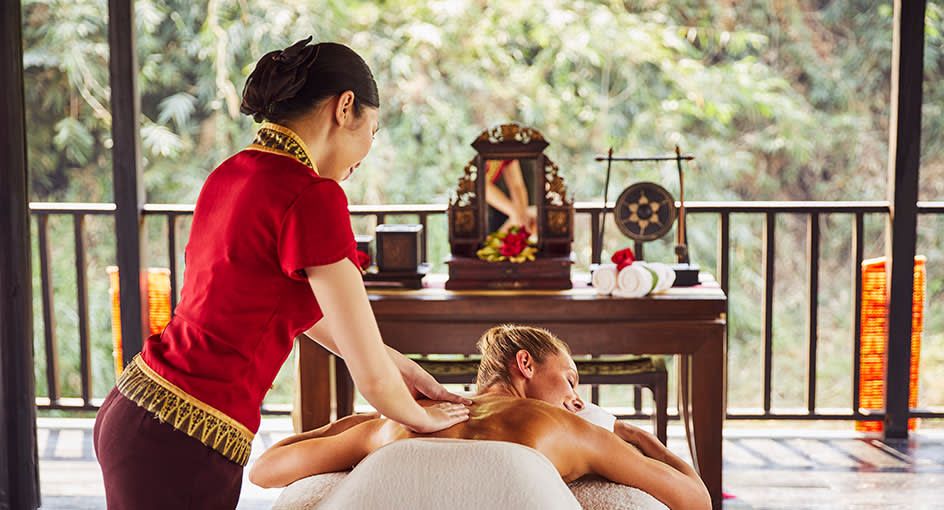BANGKOK – Thailand, long known as the Land of Smiles, is fast becoming the Land of Second Chances. It is a health and wellness tourism leader, growing faster than many global peers.
In a market forecast to reach $110.1 billion by 2034, Thailand holds a strong position, thanks to top-tier medical services, warm hospitality, and stunning natural settings. This rise comes from years of investment, consistent service quality, and a culture that values well-being.
The strongest driver of Thailand’s health tourism is the blend of high quality and sensible pricing. Travellers from countries with high medical costs, such as the United States, Europe, and Australia, face long waits and hefty bills. Thailand offers an attractive option.
A heart bypass that can exceed $123,000 in the US often costs around $15,000 in Thailand. That saving, often 70 to 80 percent, brings many patients to the country. Standards remain high.
Thailand has more than 60 hospitals accredited by the US-based Joint Commission International, the most in Southeast Asia. Facilities use modern medical technology and employ English-speaking doctors and nurses with international training.
As one analyst put it, Thailand delivers affordable care without compromise, marrying modern medicine with Thai therapies.
This mix of value and quality keeps Thailand at the top in ASEAN. Private medical services are on track to reach 400 billion baht in revenue this year.
Beyond Surgery: Wellness on the Rise
Cosmetic procedures, dental work, and complex treatments, including cancer and brain or heart surgery, still draw many visitors. Even so, the strongest momentum sits with wellness travel. This side of the sector focuses on prevention, recovery, and whole-person health. In 2024, wellness tourism alone was valued at $22.8 billion.
Thai culture, steeped in mindfulness and restorative practices, supports this shift. Travellers are seeking longer, immersive programmes that care for body and mind.
- Holistic retreats: From leafy hideaways near Chiang Mai to luxury coastal resorts in Phuket, guests can choose tailored plans for detox, stress relief, sleep health, and immune support.
- Traditional Thai wisdom: Treatments blend Thai massage, herbal therapies, and Tok Sen, or hammer massage. Northern Thailand, including Chiang Rai and Chiang Mai, is becoming a centre for Lanna-style spa services.
- Preventative care: The move toward staying well before illness appears fits Thailand’s offer. Packages can include DNA testing, tailored nutrition, yoga, and meditation. They appeal to health-focused millennials, busy professionals, and retirees.
Many call this approach the H2H Model, or Hospitality to Healthcare. It links Thailand’s tourism strengths with medical expertise, creating trips that combine treatment with a restorative holiday for patients and their families.
A Joined-up System: Policy and Private Innovation
Thailand’s progress comes from committed government policy and an ambitious private hospital sector. Since the early 2000s, the Medical Hub strategy has promoted the country as a leading centre for medical and wellness services.
- Smart investment: Funding has supported advanced equipment, new technologies, and wider health networks in both public and private sectors. Plans to build Phuket into a medical tourism hub by 2028 show this long-term focus.
- Easier entry: New visas for medical treatment allow stays of up to 90 days, well beyond standard tourist limits. Long-stay options tied to healthcare and wellness attract retirees and digital nomads.
- Private sector drive: Hospitals such as Bumrungrad International Hospital have led the way, investing in specialist fields like anti-ageing, regenerative medicine, and complex surgery. These services draw high-spending clients from the Middle East and nearby ASEAN countries.
This collaboration has created a lively HealthTech scene, with quick adoption of tools such as telemedicine and AI-supported diagnostics.
Thailand’s Human Touch
Beyond clinical outcomes, Thailand’s greatest strength is its soft power, often called Thainess. Warm, attentive service helps turn a stressful trip for care into a calming experience.
- The patient journey: Thai healthcare teams are known for empathy, skill, and cultural awareness. Recovering in a tropical setting with personal attention matters as much as the procedure for many patients.
- Easy access and travel appeal: Major airports and mature tourism services make arrivals and aftercare straightforward. From beaches and historic temples to the Lanna culture of the North, the setting supports both rest and recovery.
This mix of quality results and standout hospitality sets Thailand apart from regional rivals. India offers low prices but uneven service quality. Singapore delivers high quality at higher costs.
What Needs Attention
Strong prospects come with challenges that call for careful policy and clear priorities. The biggest concern at home is fair access for Thai citizens.
- Talent shift: Better pay in private hospitals can draw doctors and nurses away from public facilities, especially in rural provinces. This can raise costs for Thai patients and put pressure on state services.
- Rising competition: Malaysia and South Korea are investing heavily to win more medical travellers. Thailand must keep moving forward, from genomics and advanced medical tech to stronger multilingual support for some patient groups.
Authorities are responding by training more professionals and aligning international growth with strong care for locals. The aim is to capture the benefits of the medical hub strategy while protecting access at home.
Thailand’s health tourism sector is not only holding steady, it is setting the pace. With market value in the tens of billions and firm growth forecasts, the country plays to its strengths: skilled care at sensible prices, and a distinctive, culturally rooted wellness offer.
Future gains will come from deeper specialisation in areas like anti-ageing, rehabilitation, and preventative wellness, plus smart use of new medical technology paired with Thai hospitality. For people seeking medical excellence with time to heal in beautiful surroundings, Thailand delivers a complete answer. The Land of Smiles is set to remain a trusted sanctuary for treatment, recovery, and long-term health.
















